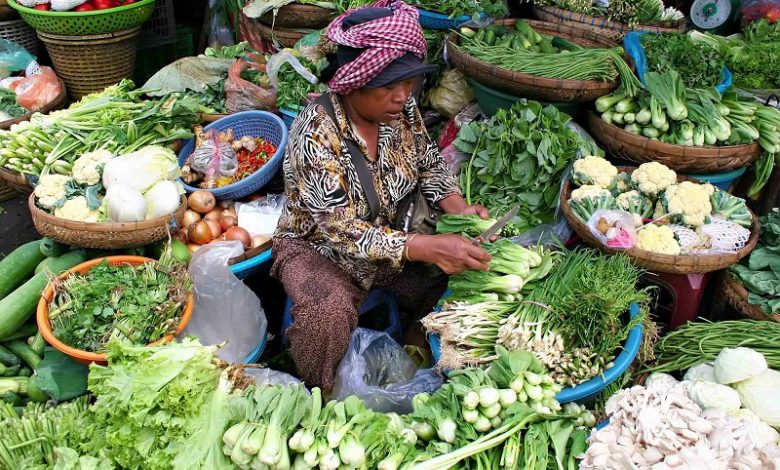
According to the General Agricultural Workers Union (GAWU), illicit mining activities in Ghana are to blame for the acute shortage of vegetables and the ensuing spike in prices.
According to GAWU General Secretary Mr. Edward Kareweh, the majority of the communities that make up the nation’s center for vegetable production are also those where galamsey is prevalent, which makes it challenging for farmers to grow produce there.
In an interview, he told the Ghana News Agency (GNA) that while seasonal variations and other natural phenomena were important, the nation’s food supply was being hampered by the effects of some industry practices.
He warned that if the right actions were not done, the issue would get worse. He said that galamsey had caused soil erosion, water pollution, land devastation, heavy metal contamination, and soil sterility.
The General Secretary of GAWU stated that galamsey had far-reaching consequences on communities, the nation, and the environment; as a result, he called on policymakers to adopt sustainable mining techniques in order to prevent food poverty.
According to him, the amount of water required for growing vegetables should be nearly equal to that needed for drinking; however, most farms had been damaged by galamsey activities, and those that were left were put in risk when floodwaters entered the vegetable farms during the rainy season.
In addition to galamsey, Mr. Kareweh claimed that certain measures made matters worse rather than filling in the gaps left by nature.
He said:
“Tomatoes generally should not be in abundance like they were in January and February, but you have to look at the marginal increase. That is why, at this time, as opposed to previously, every market day the price goes up and becomes far more costly than before, and that is what we need to investigate,”
He bemoaned the high cost of goods, pesticides, and land preparation, among other things, which are essential to the production of vegetables and have a detrimental impact on the growth of the nation’s agricultural industry.
Read Also: Vegetable Prices Increase By 100% In Kumasi



